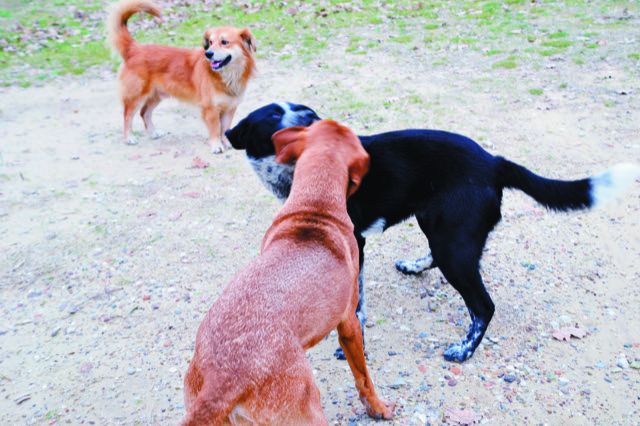Q: Someone told me they read about a cancer that a dog can give to another dog, kind of like the way you can spread an infection. Can that possibly be true?
Daisie Kilcommon
Scituate, Massachusetts
Dear Ms. Kilcommon,
A: Yes. Although more common in countries where dogs that roam freely is the norm and exceedingly rare in the United States, there’s a contagious type of canine cancer called canine transmissible venereal tumor, or CTVT. As the word “venereal” suggests, it usually occurs in a dog’s genitalia. Living cancer cells literally go from one dog to another, most often during mating.
In some dogs, however, the cancer ends up as an oronasal cancer, meaning it takes root and grows either in the oral cavity or the nose. How does that happen?
Dogs often check out each other’s genitals with their muzzles, and cancer cells can be taken up by the nose or mouth during sniffing, licking, and general poking around. The cells of this particular cancer can even be transmitted during childbirth.
Symptoms of CTVT once it takes hold somewhere in a dog’s mouth or nose include sneezing, snoring, mucusy or pus-like discharge from the nose, or bleeding. Sometimes there are even facial deformities because bone can be destroyed by the tumor.
Male dogs get CTVT in the mouth or nose much more commonly than females, according to research published last year in Vet Record. Scientists in the Department of Veterinary Medicine at the UK’s University of Cambridge combed through the histories of more than 1,900 dogs with the disease in 59 countries on six continents. The vast majority developed the cancer genitally. But of the 32 canines who developed it in their oronasal cavities (less than 2 percent of all the dogs who had the disease), 27 were males and five were females. A separate investigation by the researchers yielded similar findings.
The scientists speculate the reason for the difference is that male dogs are more likely to sniff female genitalia in the mating game than the other way around. Also, the vulva on female genitalia, where the cancer generally takes hold, is more exposed than the male dog’s penis, which is sheathed in a piece of anatomy called the prepuce.
Because this contagious cancer is so rare in the U.S., it’s generally not something to worry over. But if you have adopted a dog from somewhere else in the world who has developed any of the above symptoms or a growth in the mouth or nose, it might be worth considering as part of a diagnostic workup.





